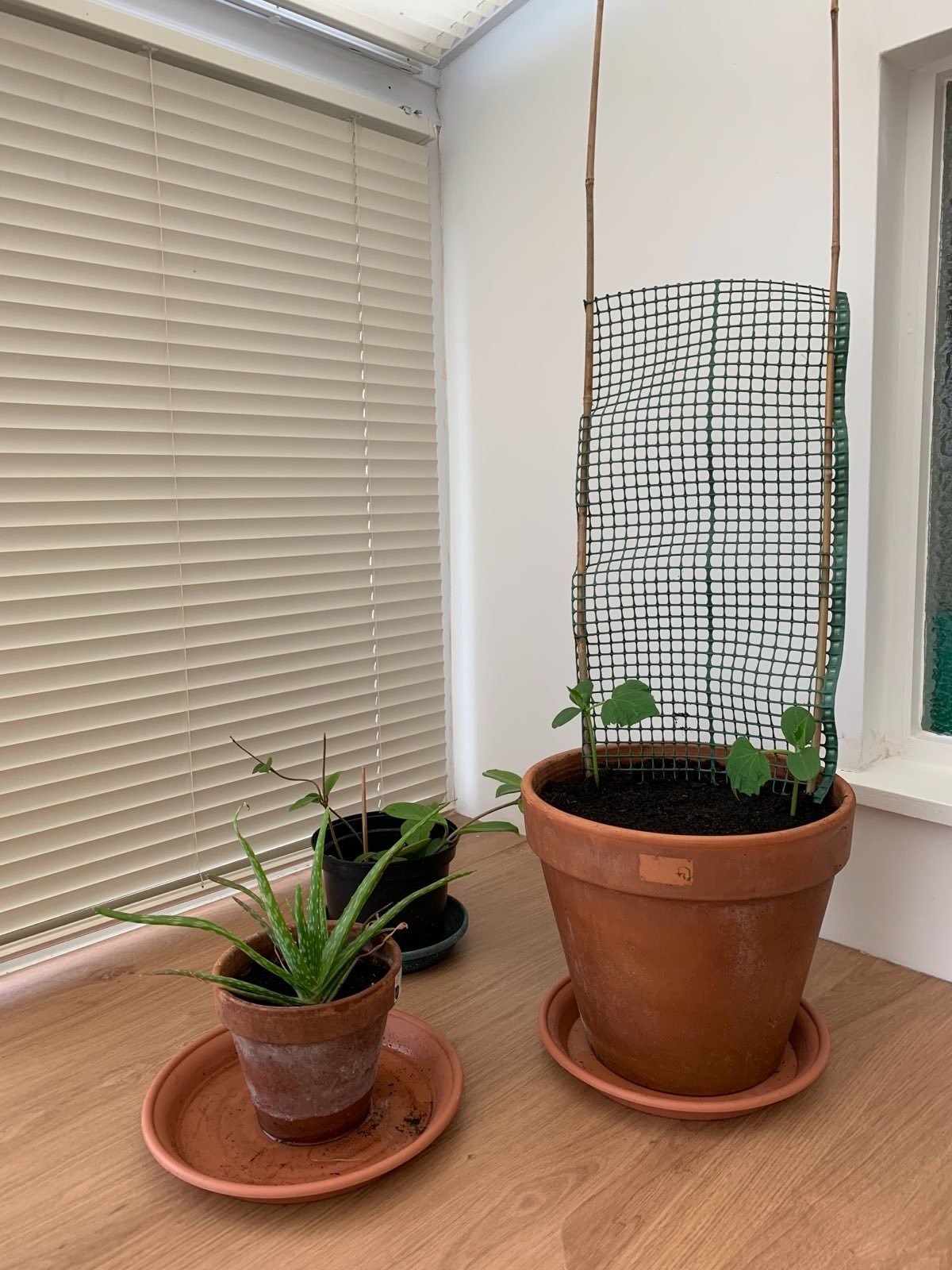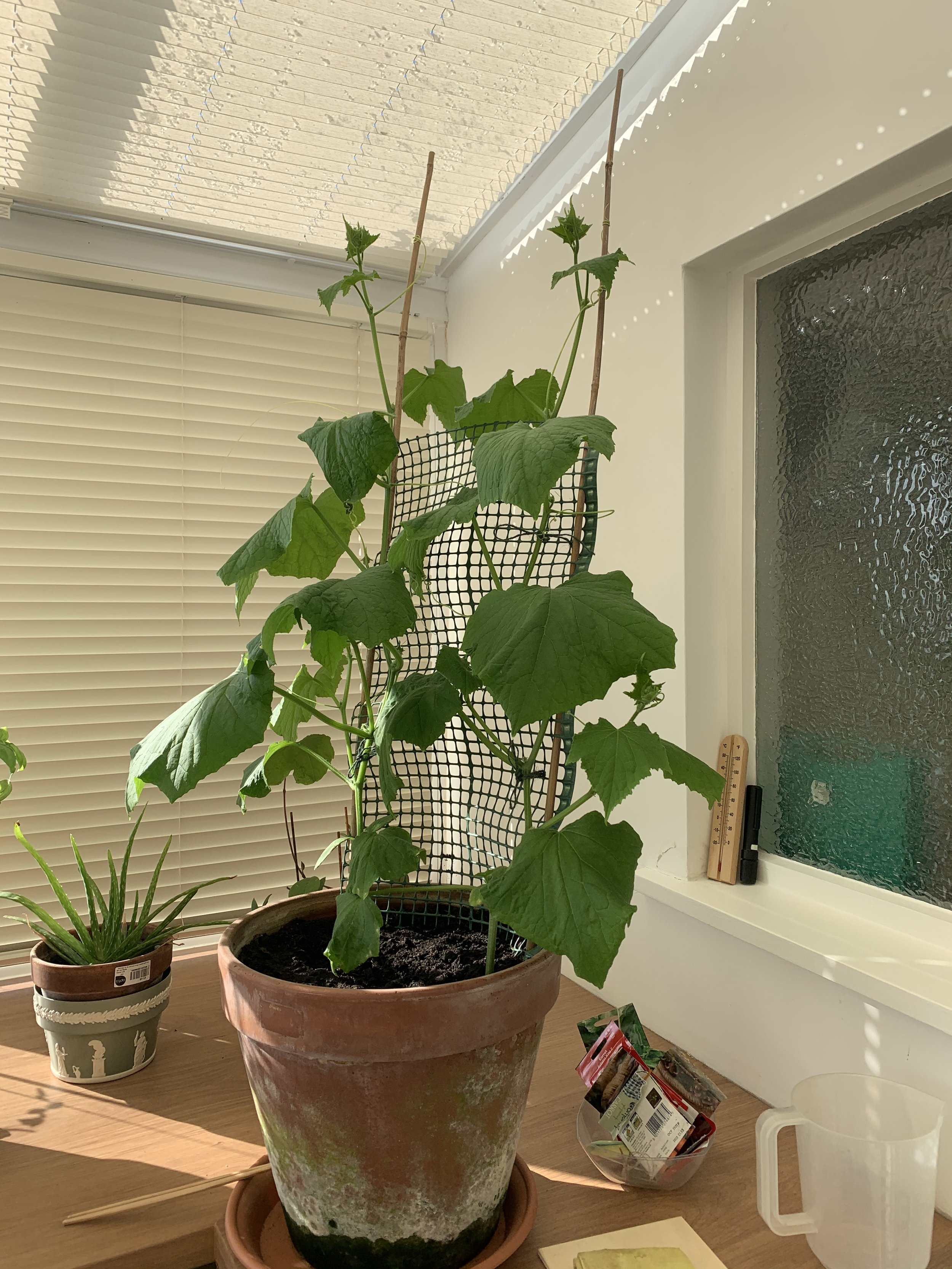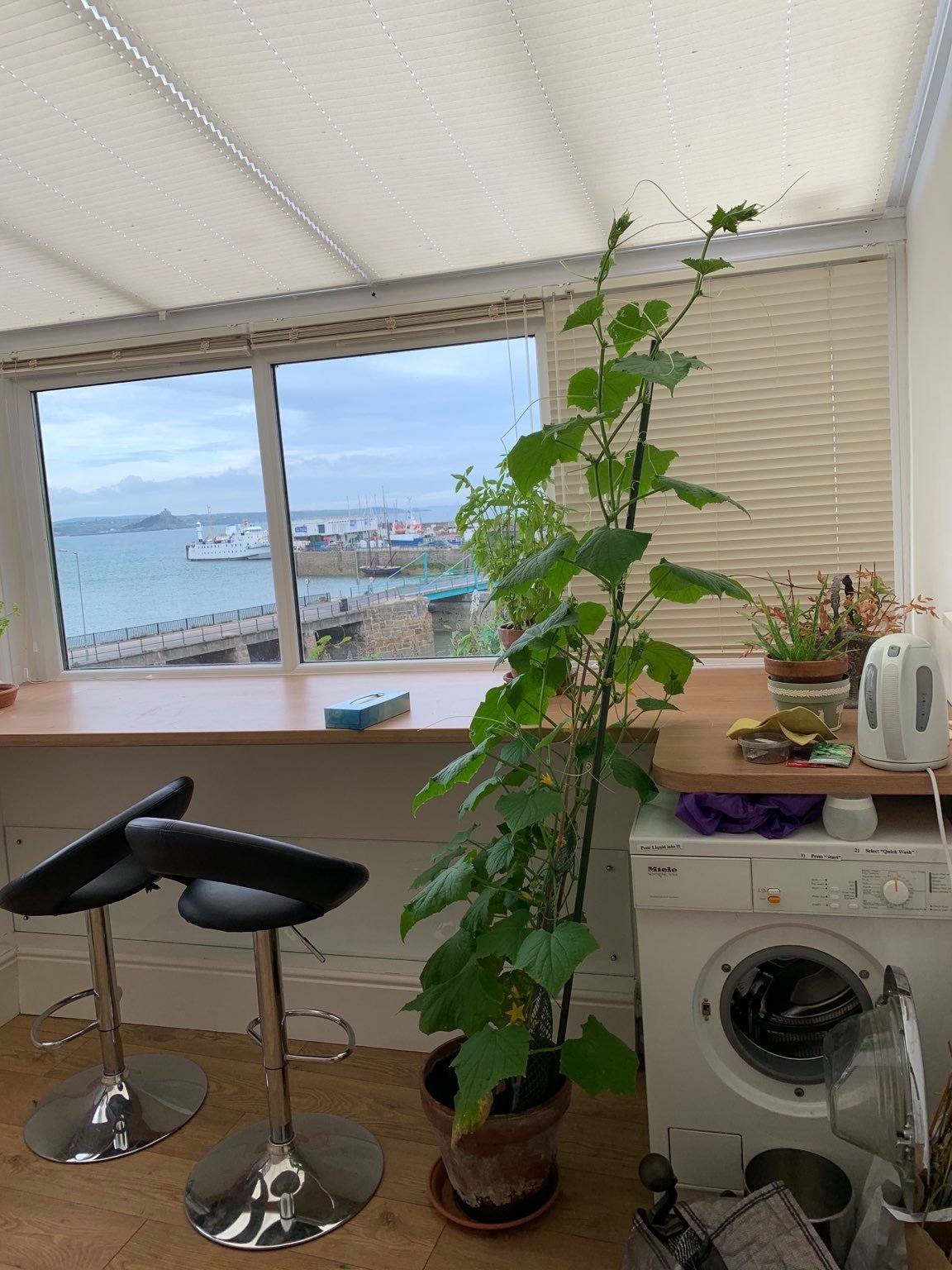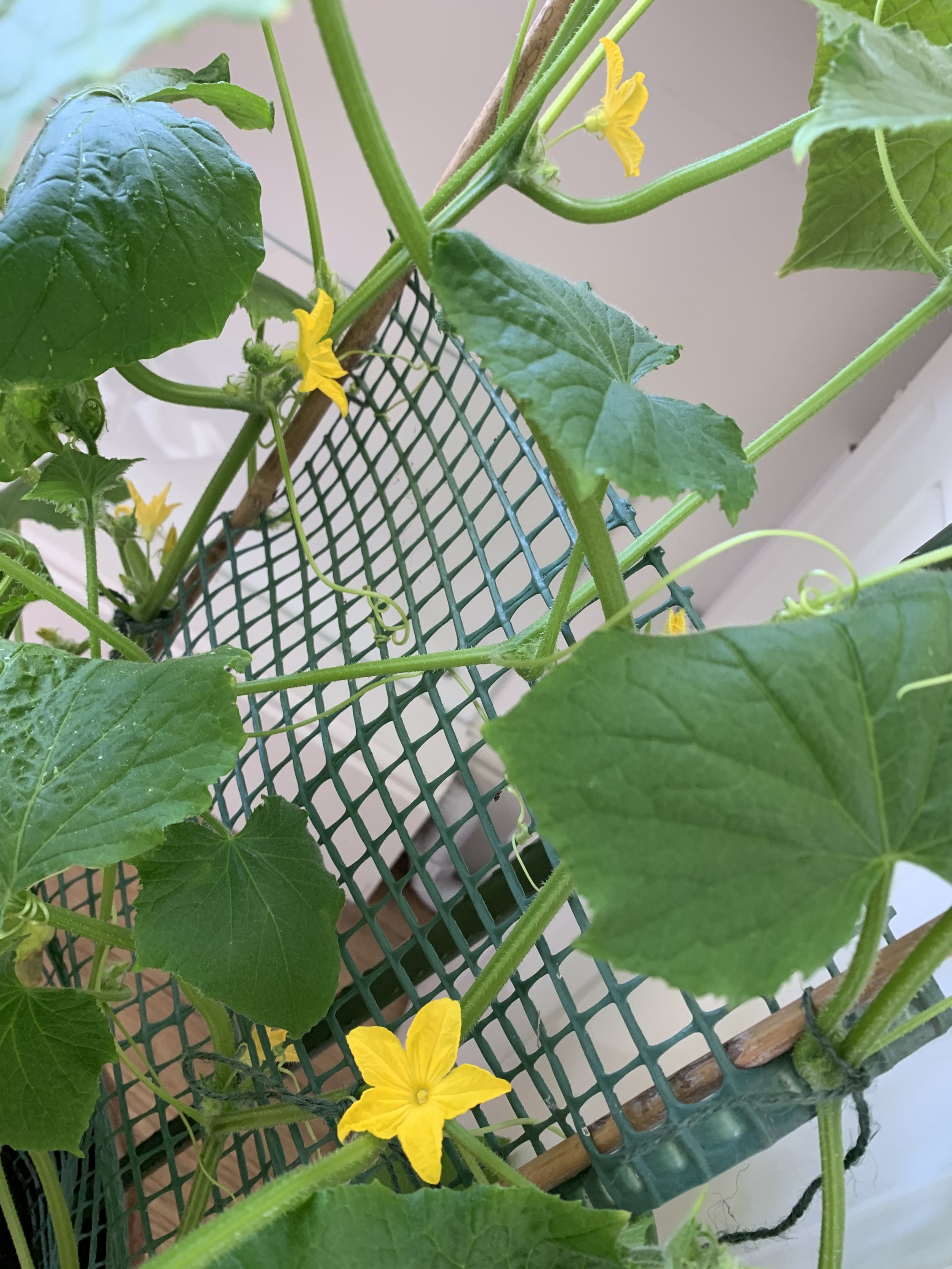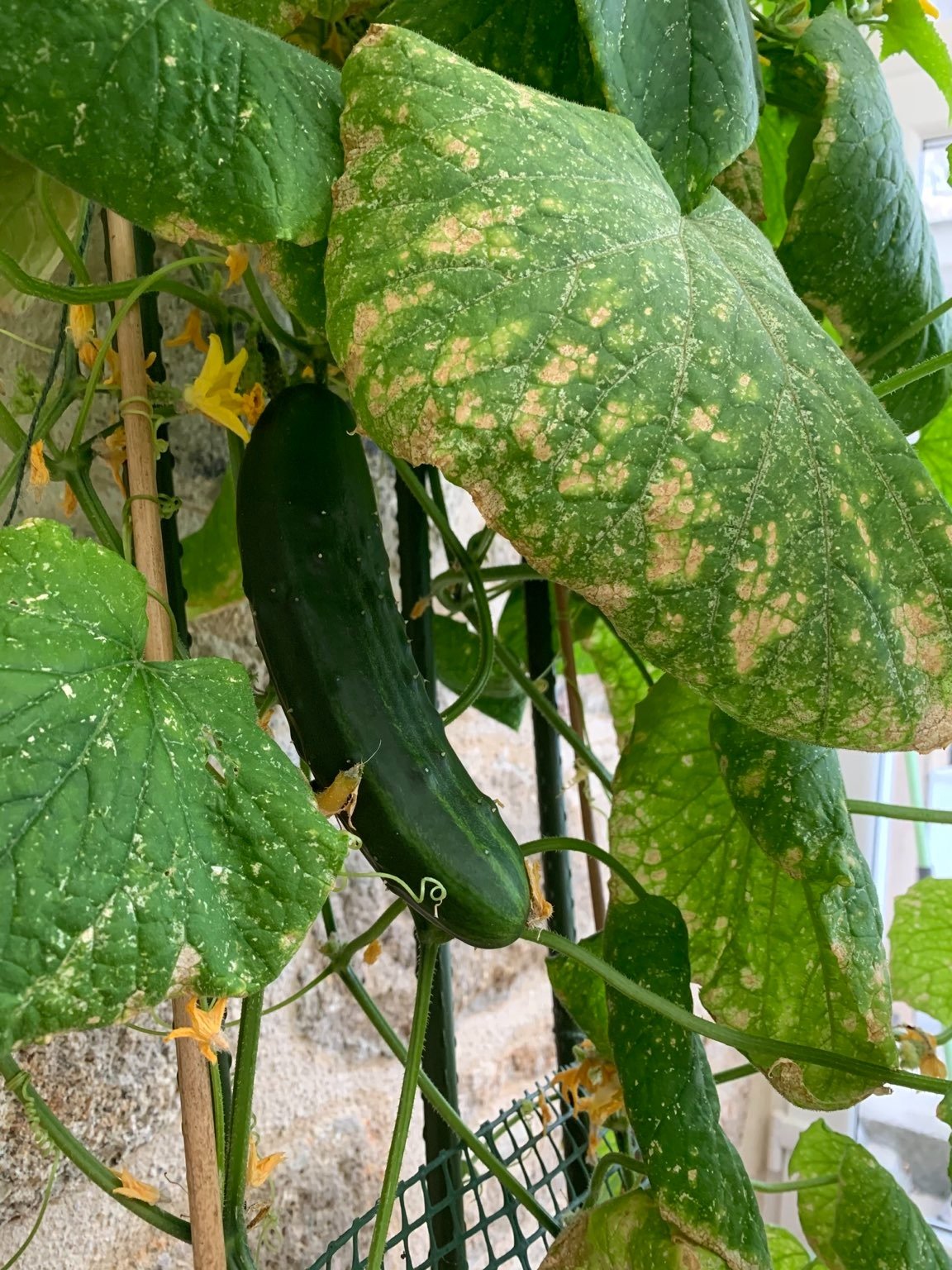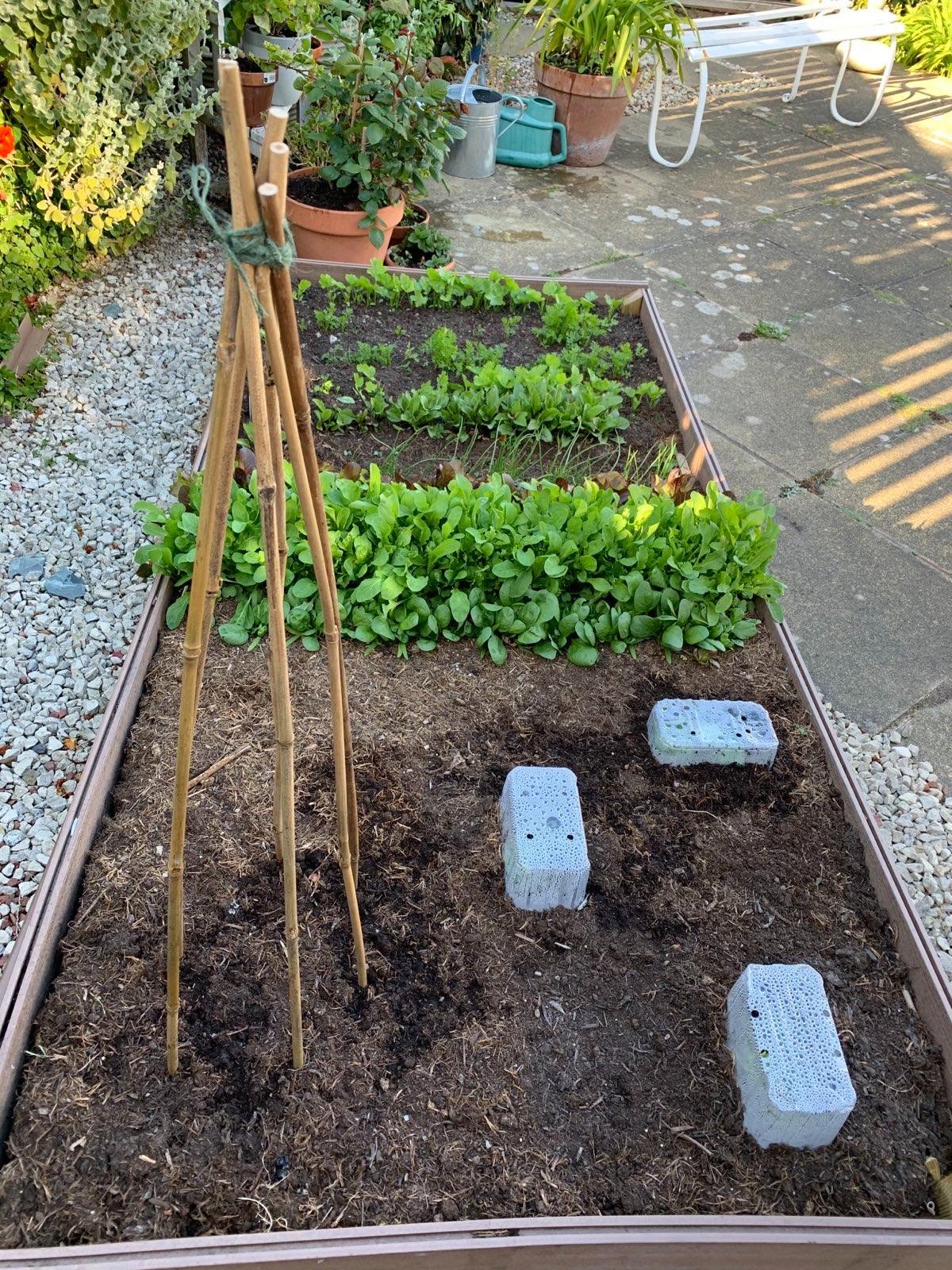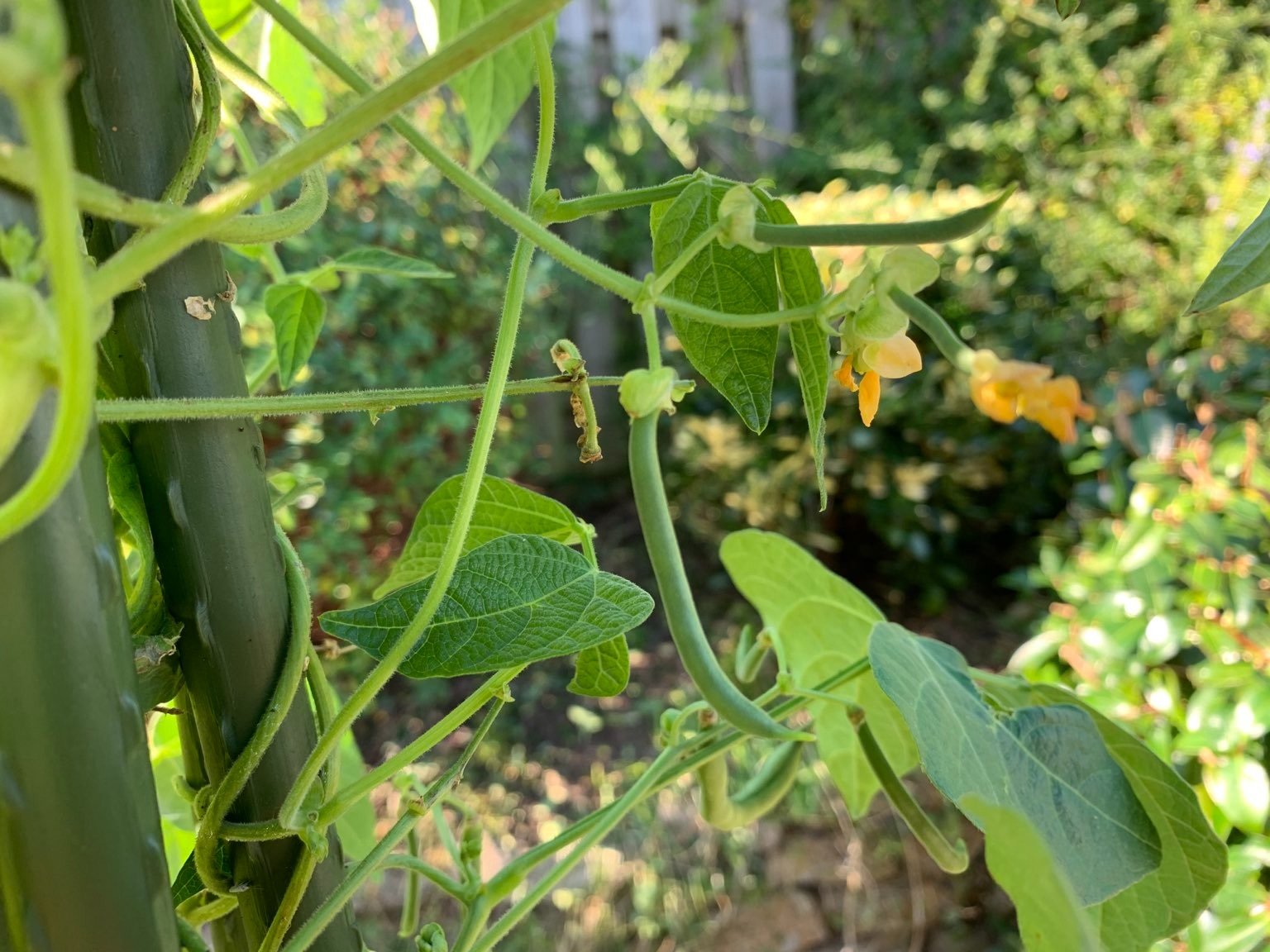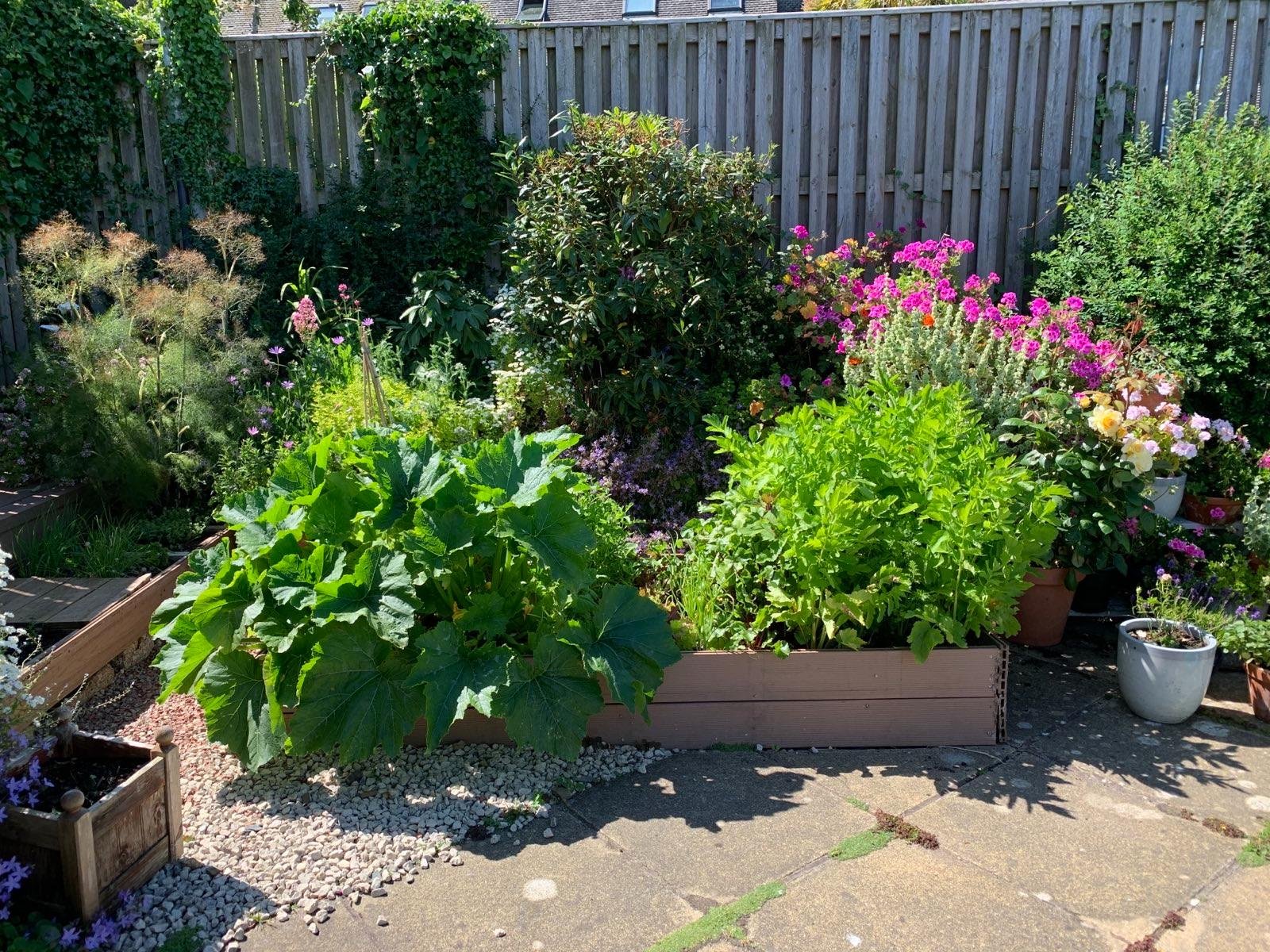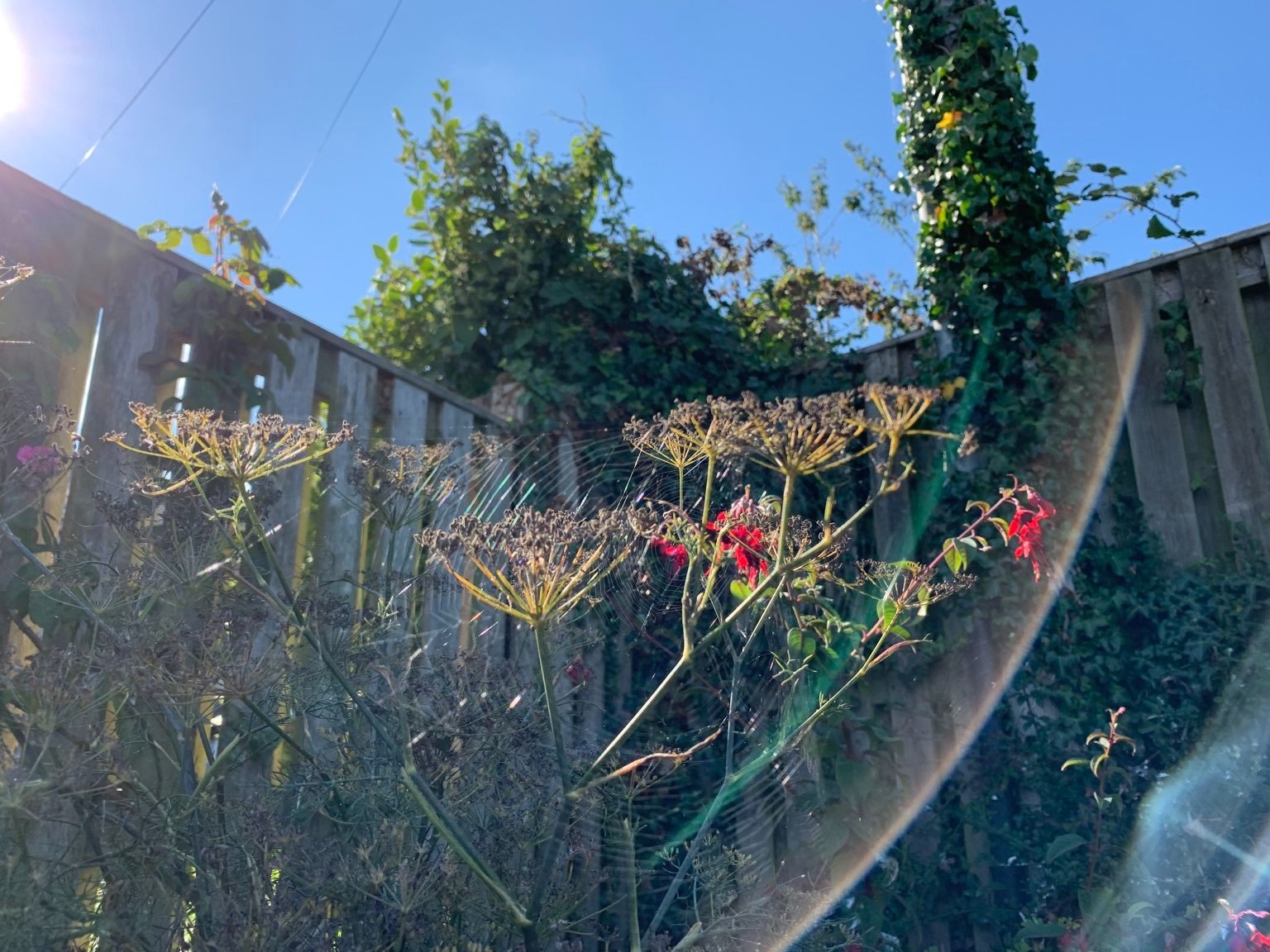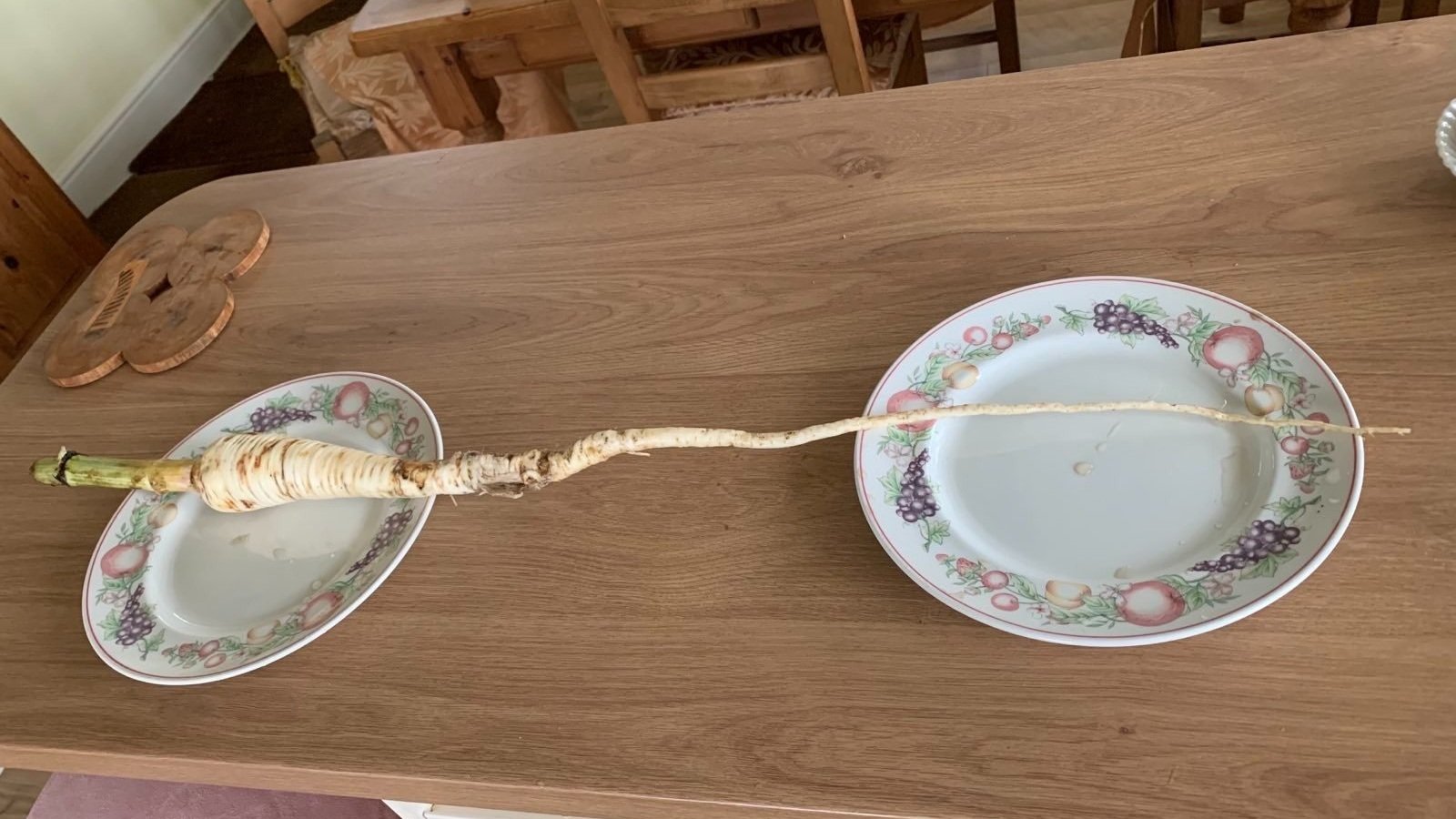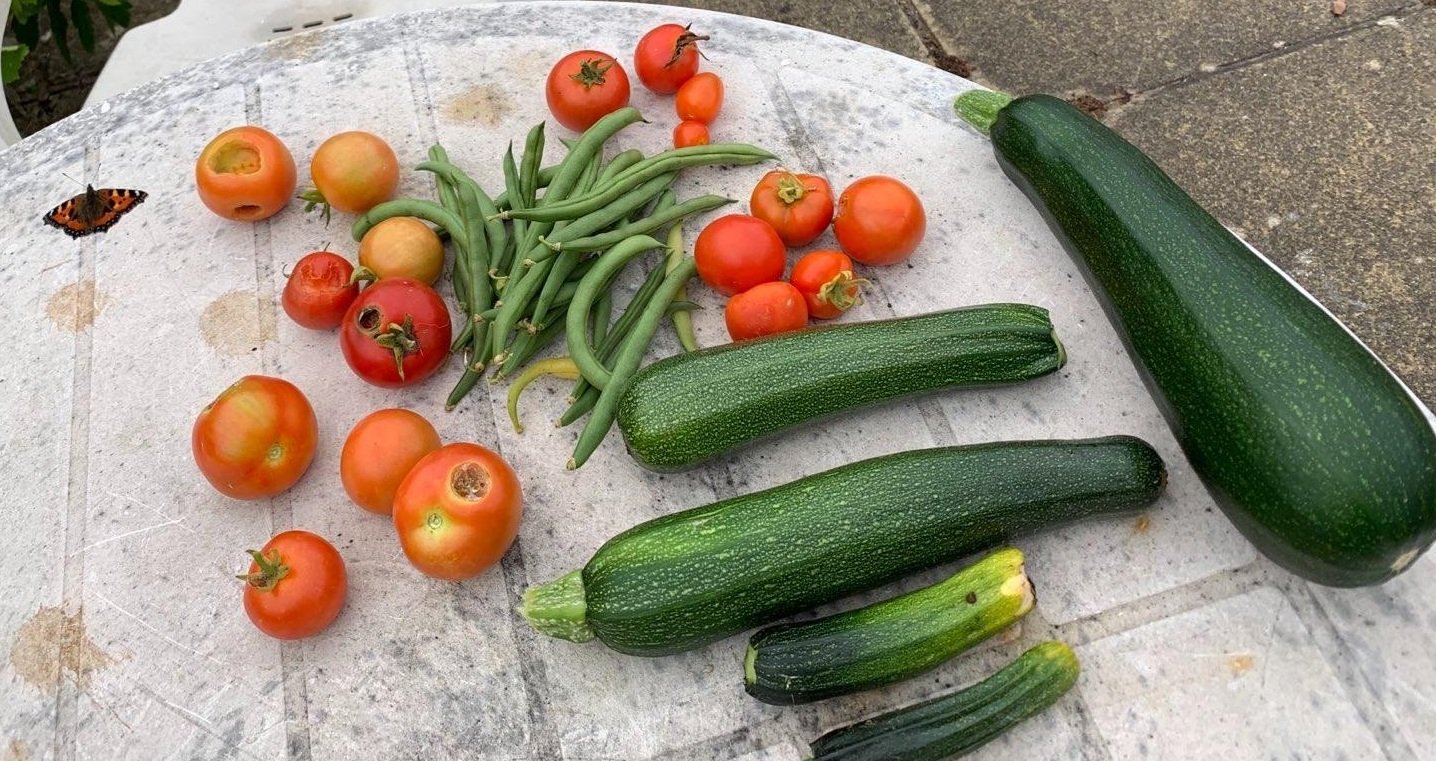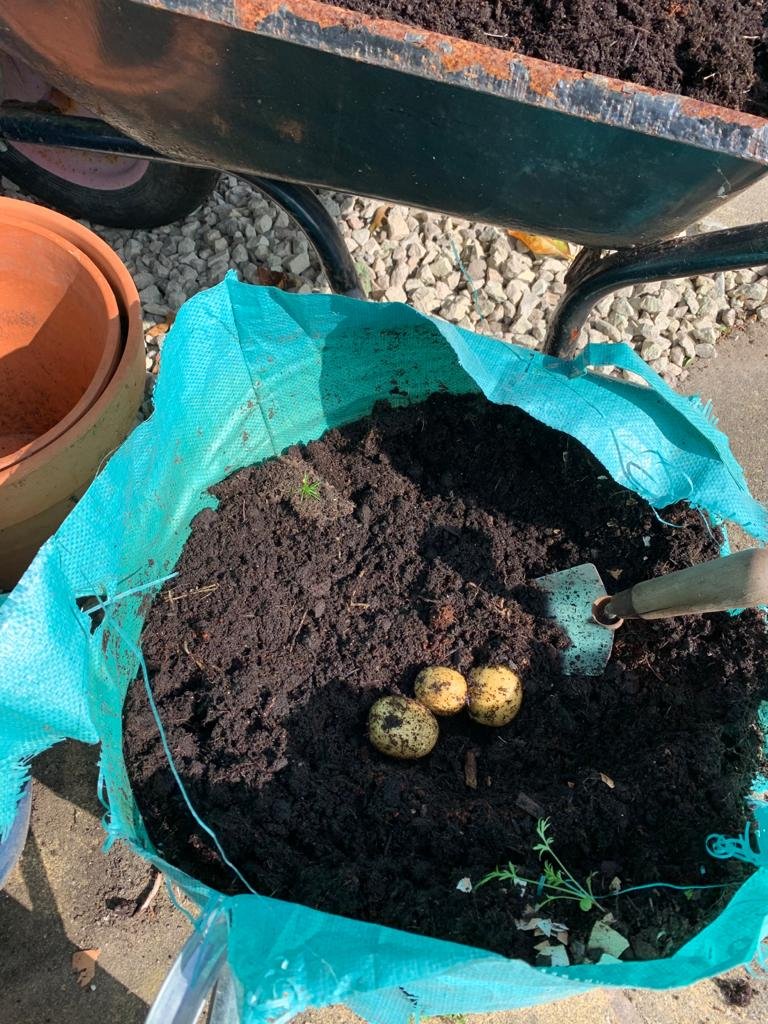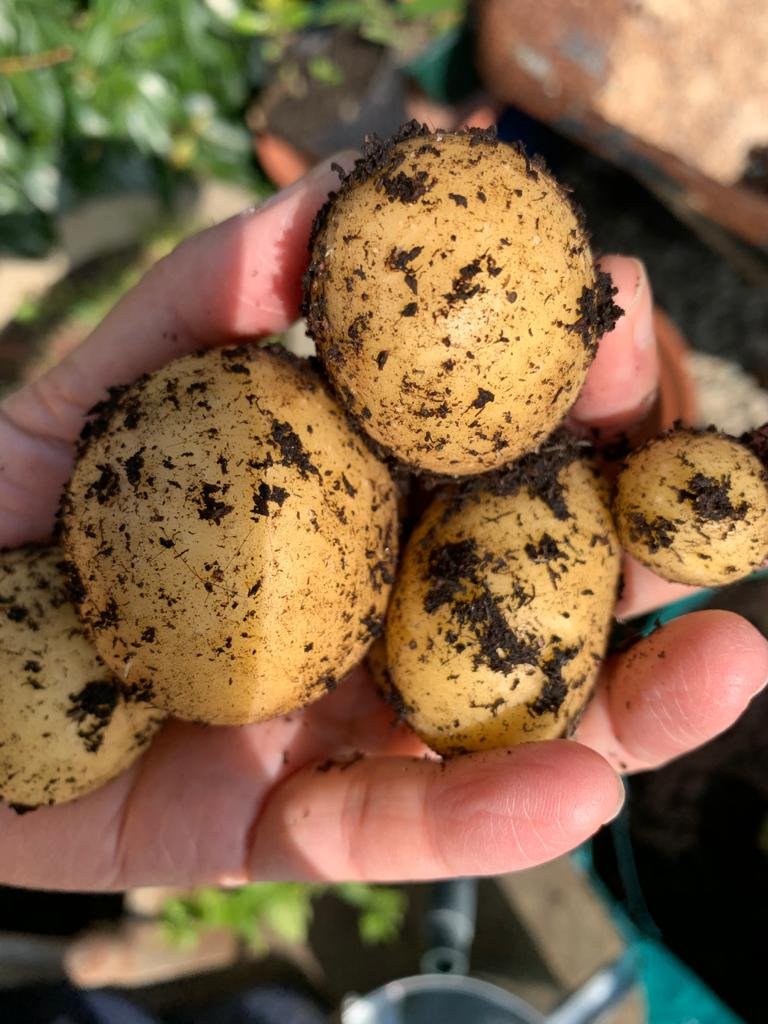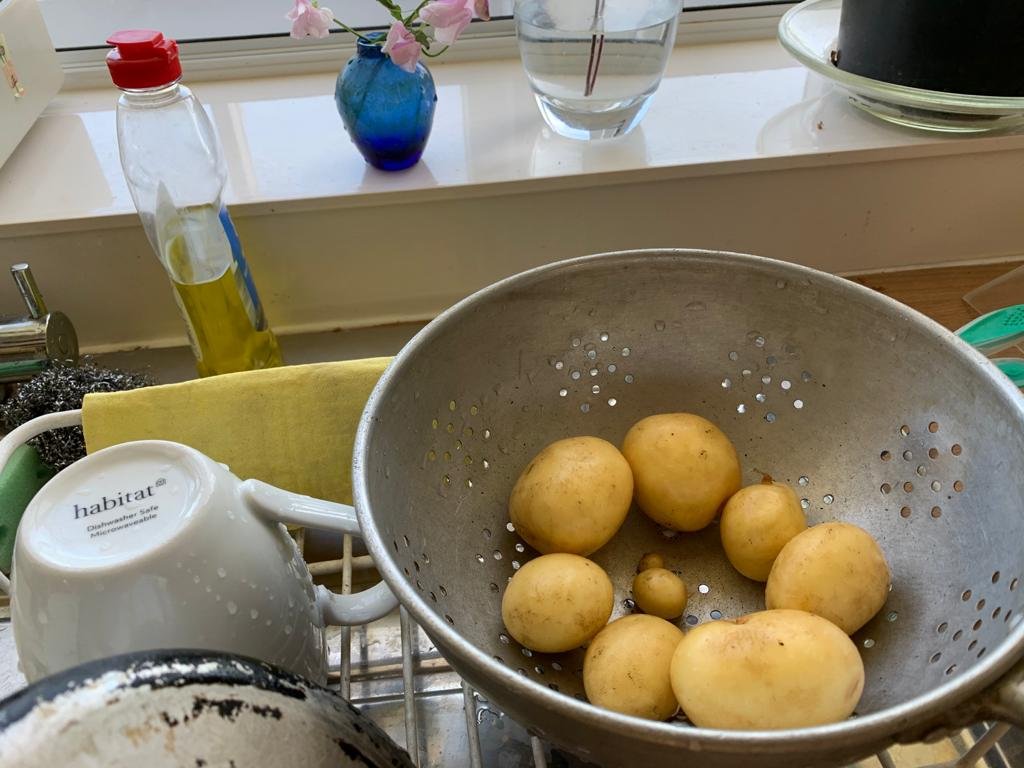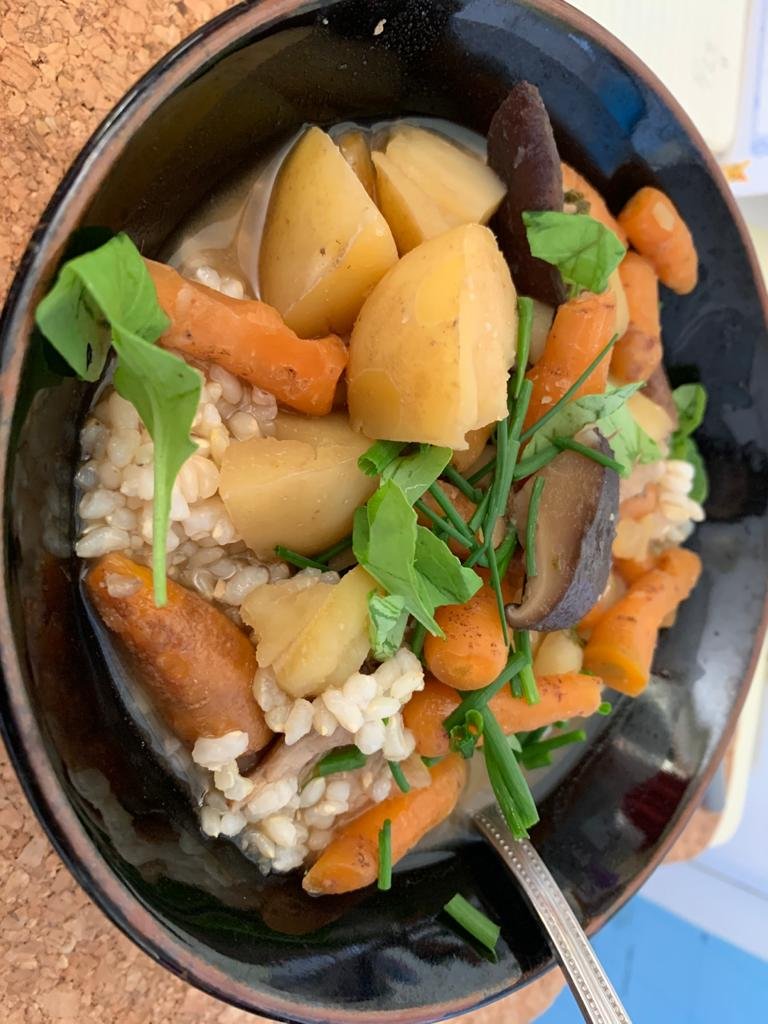Looking back at my Harvest
Taking this opportunity to look back at the year 2021, I would like to thank all the plants who provided me with lovely food…
Indoor Cucumber
Last spring, the headmistress (my garden advisor) brought some seeds of “indoor cucumber” to grow in the conservatory. The buds came out from two of them. We planted them in a pot. They seemed to like the conservatory and just grew and grew. Each time I took a glance, it had grown an inch taller. Eventually I decided to lean them against a granite wall in the conservatory, and any shoots had to be tangled around the bamboo sticks so that they would not grow any higher.
It is a mystery for me how indoor cucumber can be fertilized without bees around, but I harvested around 10 full-sized cucumbers (Looking back, the atmosphere was too dry in the conservatory, and many flowers did not produce cucumbers).
When I cut a stem of a large cucumber, a drop of water gushed out from the top of the cucumber. Wow! Of course the whole plant was focusing on feeding the water to the cucumbers. If I hadn’t cut the stem, the cucumber would have eventually dropped down to the ground and in the wild, I suppose, the seeds would grow for the next generation.
I felt had intercepted it’s life-cycle, but as a part of life-force, I didn’t waste any energy provided by the plant - as I ate them!
Baby cucumbers, ready to play badminton behind the net!
Soon they will reach the ceiling!
The story of “Jack and Bean Stalk” was true. It could grow overnight to reach the heavens!
Lots of lovely flowers
…and cucumbers!
french beans
Two of the three sisters; French beans and courgettes in front. Courgettes were covered by plastic containers to start with.
French Beans
In the new vegetable patch, we planned to grow French beans and courgettes (zucchini). The headmistress told me that beans, courgettes or squashes and sweet corns are called 3 sisters in Peru, and they get on well if you plant them close to each other.
Obviously, there is no space to grow sweet corns in my patch. So, we compromised to just to grow beans and courgettes. (Actually, I just found a YouTube video adopting this native Indian practice in the UK: 3 Sisters Planting of Sweetcorn & Beans.)
Unfortunately, the leaves of the French beans in the patch have been eaten by snails and slugs. However, other lots of French beans grew nicely in a large pot, and I guarded the plants diligently by picking up and removing any snails with chopsticks early in the morning. They were snuggling between bamboo poles, but my chopsticks won’t miss any of them!
They produced the most delicate flowers and provided me with beans well into November! Now I find myself unable to purchase French beans produced in Egypt from supermarkets.
Why do I have to eat beans which were grown so far away? They must be growing a lot for the UK market. I hope the land has not been deprived from locals to grow their own food.
french beans and flowers
And how I ate them…
Lightly boiled French beans are sandwiched with Humous
in the rye bread.
Fennel
A small plant of fennel had been placed in the corner of the garden in the early spring, and it grew very nicely. I love eating the fennel leaves with goat’s cheese!
Then in the autumn, the yellow flowers turned to be seeds. The shape of the flower heads seemed to be just right to create a cobweb. When I harvested the seeds, I had to go through a detailed work of removing tangled up cobwebs.
The seeds were sieved through to separate them from the stems.
Just from one fennel bulb, I harvested enough to fill half of a small glass jar…enough for me to enjoy sprinkling on top of curry in the coming year!
The stems were cut down to the ground, but they started to grow nicely again…So I am enjoying goat cheese and fennel leaves in the middle of the winter!
See the fennel in the left corner?
(My vegetable patch was dominated by courgettes and parsnips in the autumn.)
Fennel seeds and a cob web.
Parsnip
We sow parsnip seeds and carrots seeds alternatively in rows, as carrots flies don’t like parsnips. However, the parsnips loved the soil so much that they did not give any chance for carrots to grow properly.
Their leaves look like celery leaves, but if you handle them with bare hands, they can make your hands itchy.
Apparently, if you blanch them, you can eat them. I found this recipe called Szechuan Wild Parsnip Leaf Salad a bit too late in the year. While they were young and growing, they could have provided me with a nice dish constantly.
One thing I struggled with parsnips was digging. Due to the frames of the vegetable patch, there is no space to angle my spade to dig deeply. Next time, I will grow beetroot around the edges to create a gap between parsnips and the frames.
The harvest from my garden in September 2021!
Potato
These photos are from 2020.
I grew potatoes in a bag. 2 shooting potatoes produced 18 potatoes in the autumn! I was told to cover leaves with soil as they grew, so that they will spread more underground. However, I put too much soil in the bag in the end, and the bag burst.
1) Digging out potatoes from the grow bag.
2) Removing the soil.
3) Washing them.
4) Cooked with Shiitake mushrooms and carrots with a bit of soy sauce, and served on top of brown rice, garnished with rocket leaves and chives from the garden!

